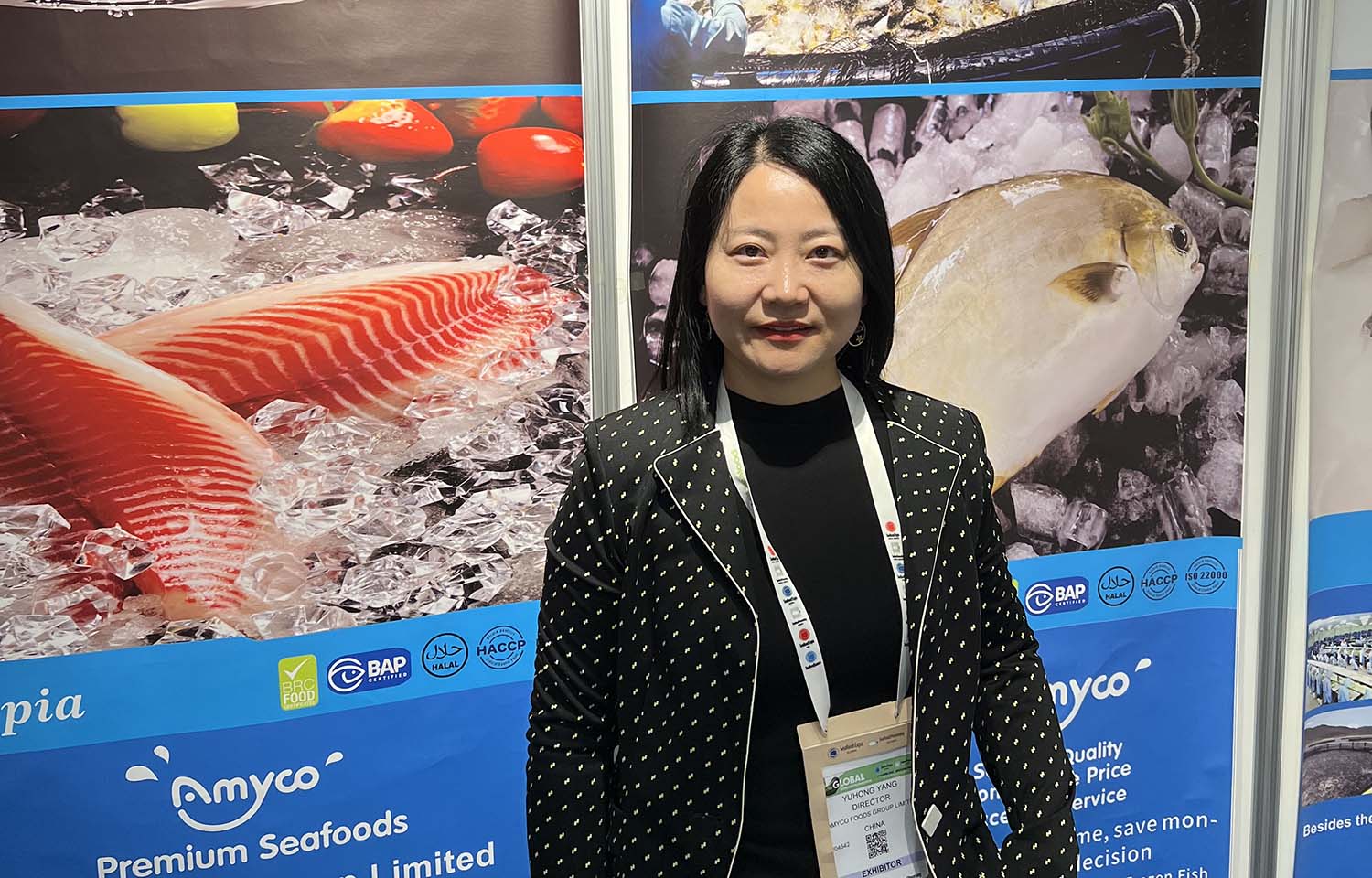The sales pitch Yuhong Yang gives to prospective customers who want to buy Hainan, China-based Amyco Foods’ tilapia is blunt.
“Chinese tilapia is high-quality, there is a lot of it, and it’s cheap,” Yang, who is the director of Amyco, said. “The quantity coming from Brazil and Vietnam is still very small and is more expensive.”
Attending the 2024 Seafood Expo Global, which took place in Barcelona, Spain, from 23 to 25 April, Yang used her sales pitch to build upon existing European partnerships the company had with purchasers in the U.K., Belgium, the Netherlands, and Spain, and to build new relationships with buyers in France.
“Tilapia is a good product for Europe,” she said. “Consumers already know about tilapia, so there is market recognition.”
The company’s best sellers include frozen and whole gutted and scaled tilapia, and its products are certified with Best Aquaculture Practices (BAP), HACCP, and British Retail Consortium (BRC) credentials. Amyco’s factory is also E.U.-approved and registered with the U.S. Food and Drug Administration.
Though this has set up Amyco well to sell tilapia and the company continues to tell consumers that China remains the largest producer of tilapia by far, Yang also said that supply has been inconsistent in the country.
“Tilapia supply has been limited recently, but we think prices will go down in June or July, allowing us to hopefully supply more in the summer,” Yang said.
With unpredictability in tilapia supply, as well as in the larger Chinese economy, Amyco is not just banking on possible supply boosts of tilapia to come to fruition. The company also provides golden pompano and shrimp, as well as catfish, eel, crawfish, and more, that are farm-raised throughout the country.
Yang said Amyco is keeping an eye on each market in which it operates to determine where to focus its production – all with the goal of meeting the company’s goal of “fulfilling what we promise and not to promise anything we can’t keep.”
What might help Amyco, as well as its supply chain, is that Chinese investors have made a push recently toward aquaculture projects. For example, state-owned China International Marine Containers Group announced it was investing CNY 100 million (USD 14 million, EUR 13 million) in a recirculating aquaculture system (RAS) project to farm tilapia in the province of Guangdong. Even though China has become a net importer of seafood and is likely to remain that way in the near future, that investment in local aquaculture may help companies like Amyco ensure long-term supply.








